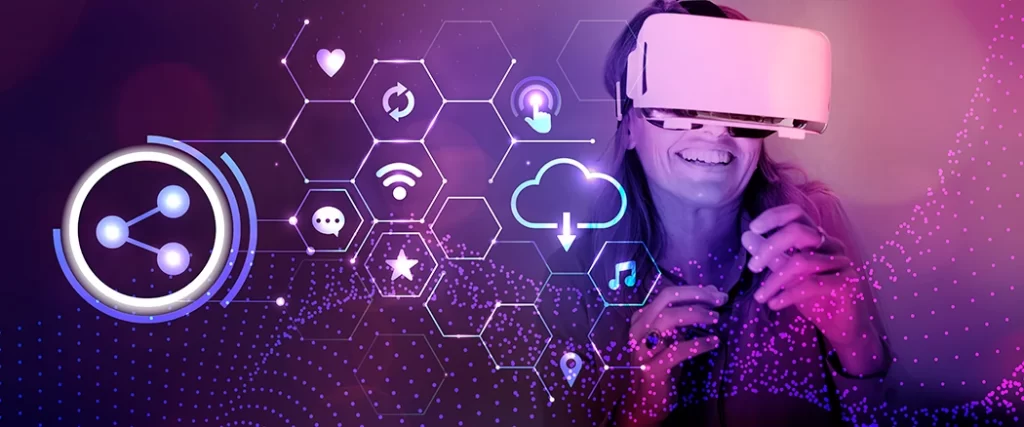What is VR?
Virtual reality
The basis of virtual reality can be described as the natural combination of two words: the virtual and the real. Virtual reality (VR) is a computer programming in which an individual experiences the effects of an artificial three-dimensional environment with the presence of real electronic devices, such as high-tech spectacles with a screen, typically accompanied by gloves that have sensors. Using such a device, the user can have a surprising realistic-feeling experience. You would experience the feeling that you are there mentally and physically. The difference between the imaginary worlds of films and books and the VR worlds is that your experience would be more intense in terms of your involvement. You can look up, down, or any which way and experience being in the locations that would otherwise not possible in the real world, like walking on the moon.
In our everyday lives, we are aware of our surroundings through the use of our senses and the perception mechanisms of our bodies. Our five senses include taste, touch, smell, sight, and hearing, but these are not the only ones at use when dealing with virtual reality as one would also need the use of their spatial awareness in order to keep balance. The input gathered by these senses are processed by our brains in order to make valid interpretations of our surrounding environments. The potential of Virtual reality lies in its ability to produce an imaginary place that our senses can experience with artificial information fed to them that would result in a stimulation with a much more realistic set of effects.
Virtual Reality is used in several fields and has different applications such as entertainment i.e. video games, 3D cinema, and social virtual worlds. In social sciences and psychology, mental reality can play a key role in the therapeutic intervention fields. As an example, anxiety disorders such as post-traumatic stress disorder (PTSD) and phobias can be treated effectively using virtual reality exposure therapy (VRET). Moreover, Elderly people who suffer from Alzheimer’s disease can be rehabilitate by the Virtual reality programs. This approach gives them a great opportunity to simulate real experiences that they cannot be exposed to in their current situations. Other fields such as engineering, medicine, physical rehabilitation, and education can also benefit from VR.
VR with its great variety of striking and unique features can provide elderly individuals or people suffering from Alzheimer’s disease with a large number of applications in many different fields such as education, social interactions, medicine, physical therapy, games, and so on.





